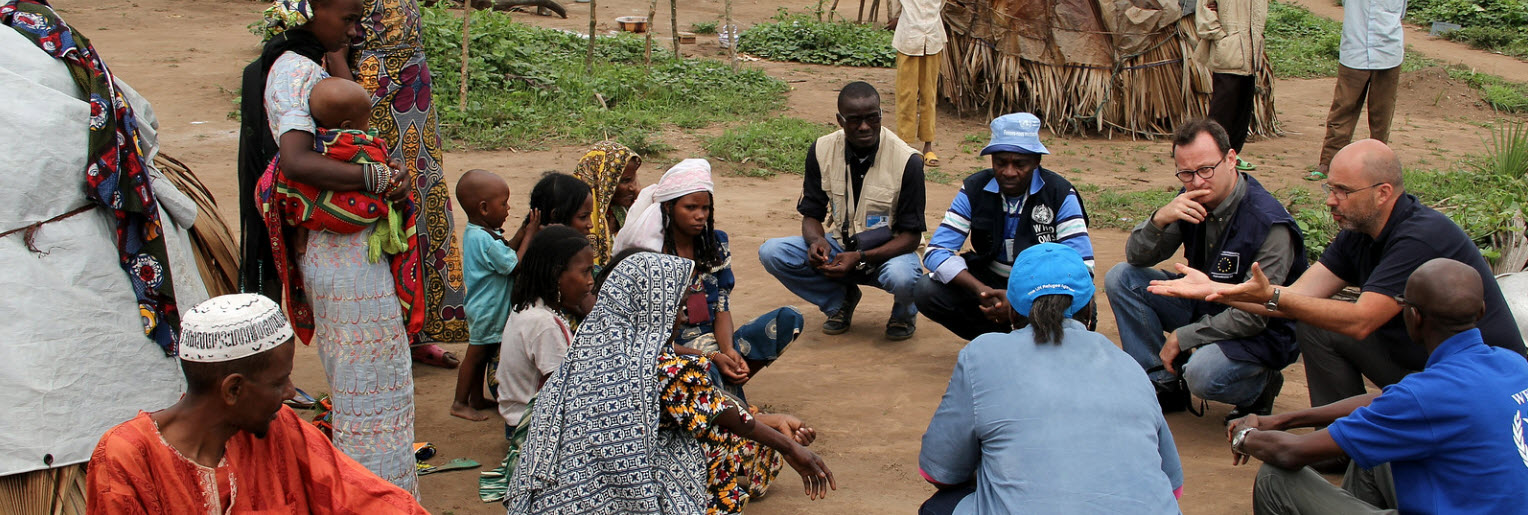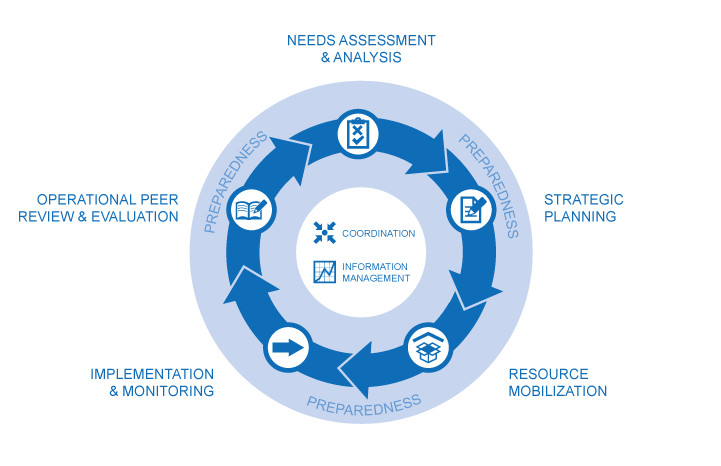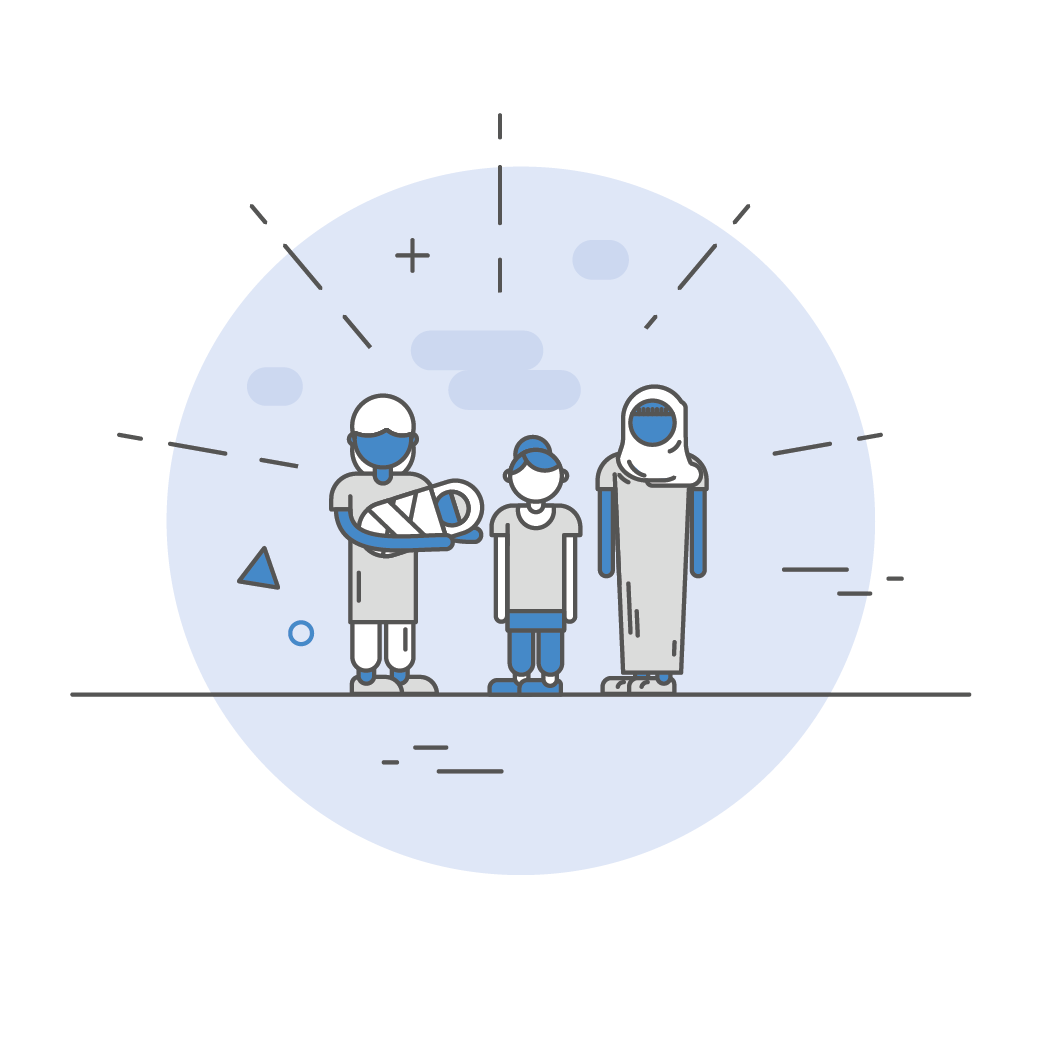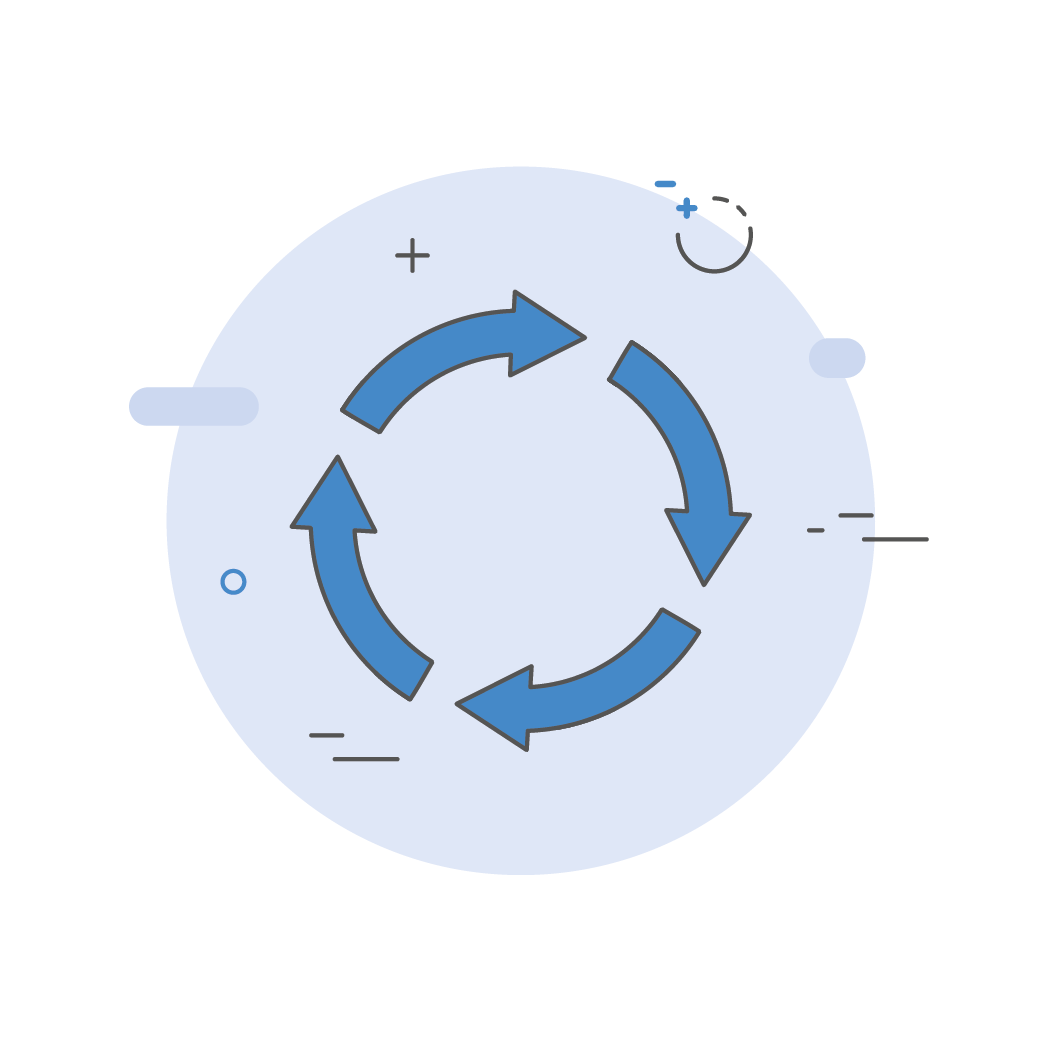
Coordination
OCHA's mission is to coordinate the global emergency response to save lives and protect people in humanitarian crises. OCHA advocates for effective and principled humanitarian action by all, for all.
OCHA coordinates humanitarian response to expand the reach of humanitarian action, improve prioritization and reduce duplication, ensuring that assistance and protection reach the people who need it most. Through critical situational and gender-responsive analysis, OCHA provides a comprehensive picture of overall needs and helps a diverse set of actors achieve a common understanding of the humanitarian context and a collective plan for the response. By doing so, OCHA influences timely decision-making to support more effective humanitarian response and emergency preparedness. OCHA’s key role in other functional areas, such as humanitarian financing, helps to enhance its coordination role.
Humanitarian coordination seeks to improve the effectiveness of humanitarian response by ensuring greater predictability, accountability and partnership. OCHA is leading the international community's efforts to develop a better architecture for the humanitarian system, including strong in-country humanitarian leaders; representative and inclusive Humanitarian Country Teams; an effective and well-coordinated framework within which all humanitarian organizations can contribute systematically; and predictable funding tools.
OCHA plays a key role in operational coordination in crisis situations. This includes assessing situations and needs; agreeing common priorities; developing common strategies to address issues such as negotiating access, mobilizing funding and other resources; clarifying consistent public messaging; and monitoring progress.
OCHA's role is to support the leadership of the Humanitarian Coordinator and to ensure effective coordination, including strengthening the cluster approach, data and information management, and reporting.
By ensuring that the right structures, partnerships and leaders are supported, OCHA and its humanitarian partners can better prepare for and more effectively coordinate humanitarian situations.
OCHA serves as the secretariat for critical inter-agency coordination mechanisms such as the Inter-Agency Standing Committee, rapid-response tools, such as the United Nations Disaster Assessment and Coordination system, and the International Search and Rescue Advisory Group. OCHA also promotes efficient interaction between civilian and military actors in humanitarian operations, bridges gaps in environmental emergency management, and maps global emergency relief stockpiles on behalf of the whole humanitarian community.
The key to effective response is the state of preparedness in advance of a crisis. OCHA promotes the value of preparedness in lessening the impact of disasters on vulnerable communities, especially in disaster-prone countries. OCHA works with national governments, regional bodies and other agencies on implementing and testing measures that help save lives in an emergency. OCHA also provides tools such as contingency planning, hazard mapping and early warning reports.
To determine the configuration of OCHA’s field operations around the world, OCHA regularly reviews its field presence against a set of standard criteria to determine when to establish, scale up, downsize or close operations. These criteria include the scale and intensity of the crisis, the number of people in need and their location, the size of the country and access constraints, the number and presence of humanitarian actors, the size of the humanitarian appeal and the capacity of national actors to provide assistance. Country office operations in complex crises often have higher operational costs, as they require special security measures and multiple sub-offices to ensure access to people in need.
Working through its regional and country offices, OCHA deploys staff at short notice to emergencies. It also supports several surge-capacity mechanisms and networks that enable the broader humanitarian community to respond rapidly to disasters and conflicts.
The Humanitarian Programme Cycle: How we manage humanitarian response
The humanitarian programme cycle (HPC) is a coordinated series of actions undertaken to help prepare for, manage and deliver humanitarian response. It consists of five elements coordinated in a seamless manner, with one step logically building on the previous and leading to the next.
Successful implementation of the humanitarian programme cycle is dependent on effective emergency preparedness, effective coordination with national/local authorities and humanitarian actors, and information management.
| Core HPC elements |
| Needs assessment and analysis |
| Strategic response planning |
| Resource mobilization |
| Implementation and monitoring |
| Operational review and evaluation |


















